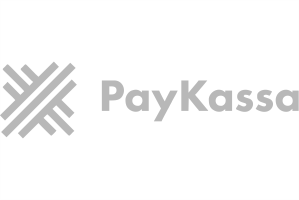| Name of service | Bronze | Silver | Gold | Platinum |
|---|---|---|---|---|
 Company name verification and reservation in DBD Verifying the availability and reserving of your preferred company name in the registry
Company name verification and reservation in DBD Verifying the availability and reserving of your preferred company name in the registry
|

|

|

|

|
 Company registration including government fees (LTD) Preparation and submission of all required documents and fees to the relevant government authorities for company registration, ensuring a streamlined process for our clients
Company registration including government fees (LTD) Preparation and submission of all required documents and fees to the relevant government authorities for company registration, ensuring a streamlined process for our clients
|

|

|

|

|
 A set of statutory documents of the company in electronic form Preparation of a comprehensive package of incorporation documents for any form of company ownership in electronic form
A set of statutory documents of the company in electronic form Preparation of a comprehensive package of incorporation documents for any form of company ownership in electronic form
|

|

|

|

|
 Company seal Production of the company seal
Company seal Production of the company seal
|

|

|

|

|
 Assistance in opening a corporate bank account in local bank: Bank of Bangkok, Siam Bank Collecting, processing and filing the necessary documents for opening a corporate account with a local bank
Assistance in opening a corporate bank account in local bank: Bank of Bangkok, Siam Bank Collecting, processing and filing the necessary documents for opening a corporate account with a local bank
|

|

|

|

|
 Local shareholder for one (1) year Provision of a Thailand resident shareholder
Local shareholder for one (1) year Provision of a Thailand resident shareholder
|

|

|

|

|
 Assistance with a VAT number obtainment Assistance in obtaining a VAT number for your company, which is necessary for accounting and payment of value added tax in accordance with tax requirements
Assistance with a VAT number obtainment Assistance in obtaining a VAT number for your company, which is necessary for accounting and payment of value added tax in accordance with tax requirements
|

|

|

|

|
 Assistance in obtaining a work visa Collection, processing and submission of necessary documents for obtaining a work visa
Assistance in obtaining a work visa Collection, processing and submission of necessary documents for obtaining a work visa
|

|

|

|

|
 Free consultation We offer a free consultation where you can discuss your needs and questions regarding company registration and management. Our experts will be happy to help you understand the process and provide guidance based on your situation. We are happy to answer your questions and help you make an informed decision about the services you need
Free consultation We offer a free consultation where you can discuss your needs and questions regarding company registration and management. Our experts will be happy to help you understand the process and provide guidance based on your situation. We are happy to answer your questions and help you make an informed decision about the services you need
|

|

|

|

|
|
Total cost
|
4900 USD | 6300 USD | 8900 USD | 13600 USD |
|
Provision of a legal address for 1 (one) year
|
1500 USD | 1500 USD | 1500 USD | 1500 USD |
|
Remote company registration with transfer of authority
|
900 USD | 900 USD | 900 USD | 900 USD |
|
Accounting services
|
280 USD | 280 USD | 280 USD | 280 USD |





















